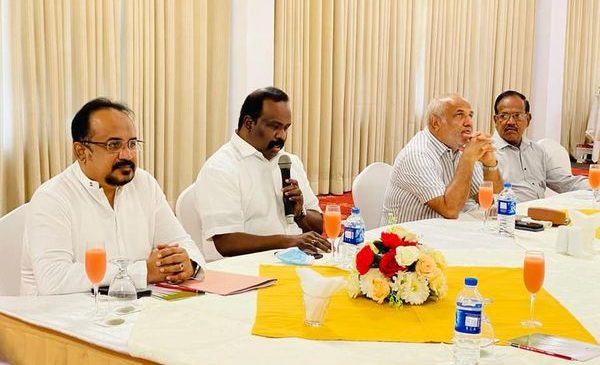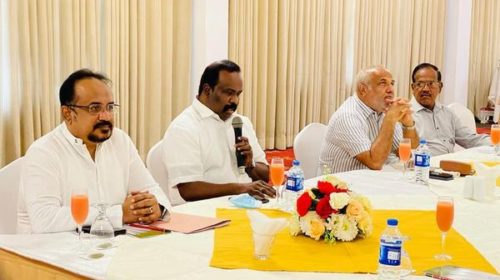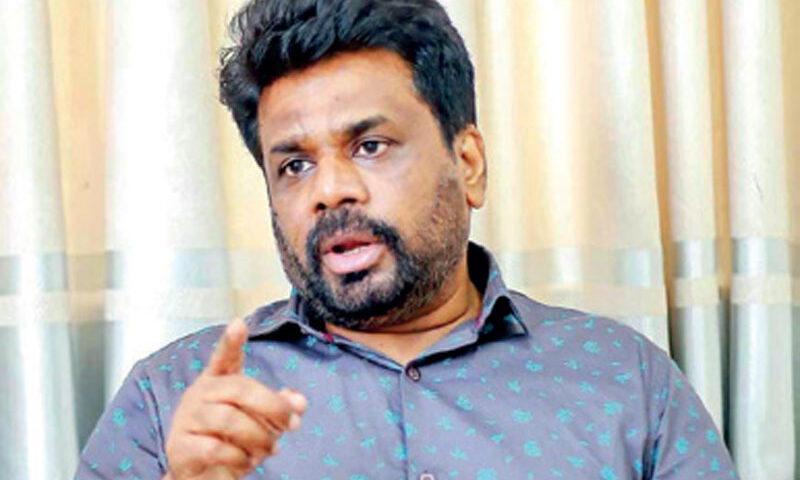Minority parties to write to India
 A group of Opposition MPs in Sri Lanka, representing Tamils from the north and east, hill country (Malaiyaha Tamils), and Tamil-speaking Muslims on Sunday sought the full implementation of the 13th Amendment to ensure “existing rights are not snatched away”.
A group of Opposition MPs in Sri Lanka, representing Tamils from the north and east, hill country (Malaiyaha Tamils), and Tamil-speaking Muslims on Sunday sought the full implementation of the 13th Amendment to ensure “existing rights are not snatched away”.
The contentious 13th Amendment, born out of the Indo-Lanka Accord of 1987, has remained in Sri Lanka’s Constitution for nearly four decades without seeing full implementation, as successive regimes in Colombo have refused to part with power over crucial areas including land, and law and order. Some within the Rajapaksa administration are calling for its repeal deeming the provincial councils, created consequent to the Amendment, “white elephants”. The 13th Amendment is the only legislative guarantee thus far for a measure of power devolution that many in the southern Sinhala majority consider “too much”, and most in the Tamil polity consider “too little”. (Also read: What is the 13th Amendment?
India has repeatedly asked the Sri Lankan leadership to ensure the full implementation of the 13th Amendment. While Colombo has in turn given many assurances to “go beyond” the legislation, to ensure meaningful devolution, “that has not happened so far,” said said senior Tamil politician and Tamil National Alliance Leader R. Sampanthan. “We have gathered today from different political parties to discuss the situation. We exchanged our views on the subject, and will be taking this discussion forward,” he told a press conference, following the MPs’ meet at a Colombo hotel on Sunday.
(Watch: TNA’s Sampanthan on permanent solution to Sri Lanka’s ethnic conflict
“There is now talk of a new Constitution, but simultaneously we see the government’s efforts such as ‘One Country One Law’,” the 88-year-old Trincomalee parliamentarian said, of an ongoing initiative of the government that critics fear might further impair even the limited legislative powers of the Provincial Councils
The parliamentarians will finalise a “comprehensive document” by December 21, said Mano Ganesan, Leader of the Tamil Progressive Alliance that represents Malaiyaha Tamils. “We are challenging this government and asking them to fully implement what is already in our Constitution. Nothing has changed in this country 12 years after the war ended. Our message is not only to the Sri Lankan leadership, but also to India, the international community and UN bodies,” he said. As a signatory to the Accord of 1987, “India has an obligation,” Mr. Ganesan added. The final document coming out of the discussion would also be sent to Prime Minister Narendra Modi, according to the organisers.
Sri Lanka’s nine Provincial Councils are defunct for about two years, after their terms lapsed in 2018 and 2019. “Meanwhile, the Centre through various presidential task forces is trying to snatch our powers. If that has to be stopped, we must emphasise our rights highlighting what is guaranteed in our Constitution,” said Rauf Hakeem, Sri Lanka Muslim Congress Leader and legislator.
Jaffna MP and former Northern Provincial Council Chief Minister C.V. Wigneswaran said in demanding the full implementation of the 13th Amendment, the MPs were not abandoning the call for a federal political solution to Sri Lanka’s historic Tamil national question. “While we don’t see the Amendment as a permanent solution, we recognise its importance in the interim, until there is an acceptable permanent solution,” he said, adding: “India will be able to intervene only as long as the 13th Amendment is there.”
Tamil polity divided
In this renewed emphasis on the 13th Amendment, Sri Lanka’s Tamil polity appears divided. While TNA constituents Tamil Eelam Liberation Organisation (TELO) and People’s Liberation Organisation of Tamil Eelam (PLOTE) are part of the MPs’ initiative centred on the legislation, the Illankai Tamil Arasu Kachchi (ITAK) – chief constituent of the TNA that Mr. Samapanthan and Mr. Sumanthiran belong to – have been focusing on the prospect of a political solution in the promised new Constitution, turning the spotlight away from the 35-year-old Amendment that few Tamils consider adequate.
In August this year, Mr. Samapanthan wrote to President Gotabaya Rajapaksa expressing keenness to meet him and discuss the new Constitution. “The 13th Amendment to the Constitution was enacted in 1988 this was found to be inadequate and since 1988 every successive government has taken steps and agreed to build on the 13th Amendment to bring about meaningful devolution. There has been substantial consensus derived from these processes,” Mr. Sampanthan said in the letter reminding Mr. Rajapaksa of a pending meeting. President Rajapaksa was scheduled to meet the TNA in June, but the meeting was postponed, and his office is yet to announce a new date.
Further, TNA’s Jaffna legislator M.A. Sumanthiran recently led a delegation to the United States, where the Alliance sought a US-India collaboration in pushing for a political solution in Sri Lanka by way of a constitutional settlement. Remarking on the MPs’ initiative, Mr. Sumanthiran said in a Jaffna meeting on Saturday: “If 13th Amendment were enough, why would we have lost so many lives? Lakhs of our people died after it came into effect… The Amendment is not a meaningful way of devolving power. Even [PM and former President] Mahinda Rajapaksa has acknowledged that in the past. Why are we now asking for something that is not meaningful?” The TNA has been in discussion with India at every stage, he added.



